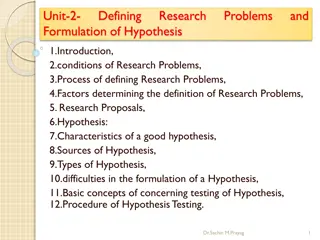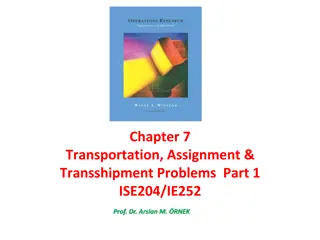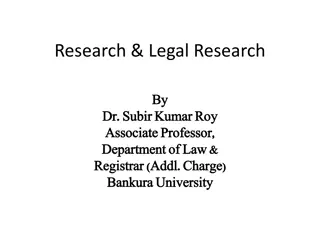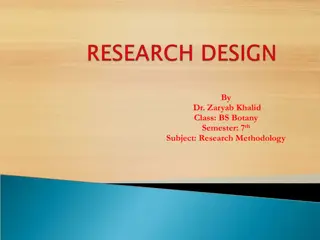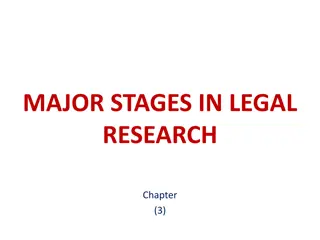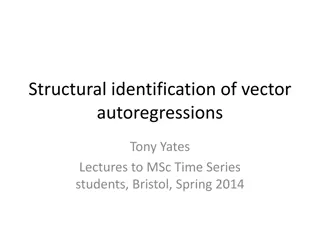Overview of Research Problem Identification and Formulation
Understanding the importance of defining a research problem, this content delves into the selection and formulation of research problems, the definition of a research problem, reasons for defining it, methods for identifying research problems, sources of research problems, and considerations in selecting a research problem. It emphasizes the crucial role of identifying a clear and specific research problem in the research process.
Download Presentation

Please find below an Image/Link to download the presentation.
The content on the website is provided AS IS for your information and personal use only. It may not be sold, licensed, or shared on other websites without obtaining consent from the author.If you encounter any issues during the download, it is possible that the publisher has removed the file from their server.
You are allowed to download the files provided on this website for personal or commercial use, subject to the condition that they are used lawfully. All files are the property of their respective owners.
The content on the website is provided AS IS for your information and personal use only. It may not be sold, licensed, or shared on other websites without obtaining consent from the author.
E N D
Presentation Transcript
Selection and Formulation of Research Problem Dr. Muhammad Ibrar
Introduction A research problem is a question that researcher wants to answer or a problem that a researcher wants to solve. Identification & formulation of a research problem is the first step of the research process. Selection of research problem depends on several factors such as researcher s knowledge, skills, interest, expertise, motivation & creativity with respect to the subject of inquiry. It is believed that most of the good research studies need lots of time for selection of a research problem.
Definition According interrogative sentence or statement that asks what relation exists between two or more variable. The answer to question will provide what is having sought in the research. R.S. Woodworth defines problem as a situation for which we have no ready & successful response by nature or by previous acquired habit. We must find out what to do , i.e. the solution can be found out only after an investigation. to Kerlinger, A problem is an
WHY TO DEFINE A RESEARCH PROBLEM It determines, what you will do, will it sustain scientific study, how you will do it, and what you may achieve!!!!
IDENTIFICATION OF RESEARCH PROBLEM Identification of a research problem is the first & most important step in research process. Generally, a broad area is selected & then a broad topic is delimited or narrowed down to a specific one sentence statement of the problem. This step of the research process is considered as the most difficult & challenging, & needs lots of time.
SOURCES OF RESEARCH PROBLEM 1:Curiosity 2:Personal Experiences 2:Practical Experience 3:Review Of Literature 4:Previous Research 5:Existing Theories 6:Consumer Feedback 7:Dissertations 8:Social issues., 9:Brainstroming 10: Resource persons - professors
CONSIDERATION IN SELECTING A RESEARCH PROBLEM 1. Interest: A research is usually time consuming, and involves hard work and possibly unforeseen problems. One should select topic of great interest to sustain the required motivation. 2. Magnitude: It is extremely important to select a topic that you can manage within the time and resources at your disposal. Narrow the topic to something so it becomes manageable, specific and clear.
Contd. 3. Measurement of Concepts: Make sure that you are clear about the indicators and measurement of concepts (if used) in your study. 4. Level of Expertise: Make sure that you have adequate level of expertise for the task you are proposing since you need to do the work yourself.
Contd. 5. Relevance: Ensure that your study adds to the existing body of knowledge, bridges current gaps and is useful in policy formulation. 6. Availability of Data: Before finalizing the topic, make sure that data are available. 7. Ethical issues: How ethical issues can affect the study population and how ethical problems can be overcome should be thoroughly examined at the problem formulating stage.
Contd. 8. Overdone subject: Subject which is overdone should not be chosen, for it will be difficult task to throw any new light in such a case. 9. Controversial subject: Should not become the choice of an average researcher. 10. Too Narrow topic should be avoided


